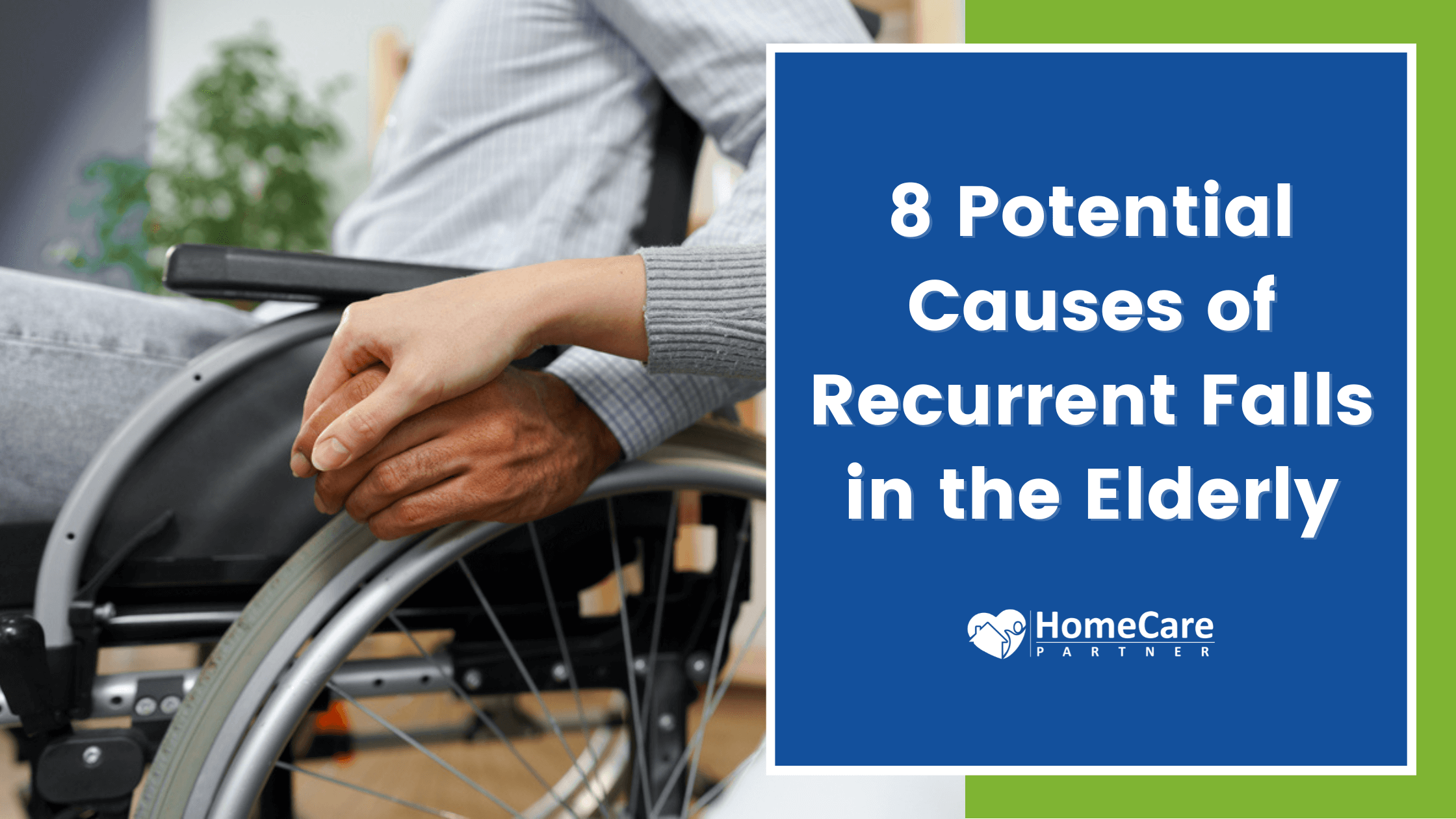


Falls are one of the main causes of fatalities, injuries, and hospital admissions in seniors. According to WHO, the majority of fatal falls occur in those over the age of 60. The right safeguards can be taken by family caregivers to keep their loved ones safe on their feet by helping them understand why older people are more in danger.
There are major changes to one’s body when one grows old. Strength, stability, and balance are interrelated. A lot of recurrent falls in the elderly are also elevated with the loss of their vision or decline in their vision. In this blog, we go over the most common causes of falls in the elderly.
Falls are often caused by medical diseases that affect balance, physical stamina, joint integrity, and/or cognitive function, such as Parkinson's disease, Alzheimer's disease, and arthritis. Your elderly loved one’s initial risk of falling increases with poor physical condition, which also reduces their capacity to detect hazards and recover from mishaps like tripping or slipping.
Additionally, osteoporosis can also play a major role in falls as many older people develop this condition which makes bones brittle and weak, making them prone to breaking. In this case, the bones become so weak that they can’t bear the weight of the body, resulting in the breaking of bones and, thus, recurrent falls.
Age-related eye conditions make it challenging for your loved ones to recognize fall hazards like thresholds, puddles, and steps. Even if your elderly loved one is in excellent physical shape, a nasty fall might result from failing to recognize and appropriately assess obstructions or changes in ground level. Additionally, refusing to use the appropriate low vision aids and wearing eyeglasses as prescribed by a doctor can increase the risk of falling.
Taking several medications at once might raise your risk of falling. This happens due to the side effects of several medications, such as dizziness, lightheadedness, unsteadiness, sleepiness, blurred or double vision, and problems thinking properly. The most frequent causes include sedatives, antidepressants, antipsychotics, opioids, and some cardiovascular medications.
Attention in work and memory are the two most common cognitive functions in your elderly loved ones. Due to the importance of cognition in maintaining control over one's stride, cognitive impairment (CI) raises a person's risk of falling. According to research elderly people with dementia fall 2-3 times more frequently than older people who are cognitively fit, and 60-80% of dementia sufferers fall each year.
As people age, they tend to become less active, which exacerbates the physical impacts of aging. Regular exercise helps maintain healthy muscle mass and strength. It also plays a vital role in improving balance, coordination, and flexibility. The decline in the physical fitness of your loved ones raises the risk of falling. General deconditioning also makes it more likely that they may suffer a catastrophic injury and have a more challenging time recovering.
One of the many things that can cause falls in elderly loved ones is hearing loss. Elderly people who have hearing loss are three times more likely to fall accidentally. Furthermore, every additional 10 dB of hearing loss raises the risk by 140%.
The majority of falls take place in the home. Dim lighting, clutter, unkempt areas, loose carpets, slippery flooring, and a lack of safety equipment (such as grab bars, ramps, and elevators) can contribute to more falls.
A fall could be the first indication of a developing or deteriorating health issue. Fall risk factors for recent and frequently transient health issues include:
The above-mentioned causes are only some of the reasons for a fall in your elderly loved ones. But when these factors are combined, it can lead to serious life-threatening injuries to them. To solve this problem, you need to take various steps to ensure their safety.
Home Care Partner can help prevent falls in your elderly loved ones. Our caregivers are always with them and ensure they are not caught in an accident that leads to recurrent falls. They will also come up with plans that can reduce the chances of falls significantly.
You can also check out this blog to learn more about the various ways with which you can prevent injuries in older adults due to falls.
Are you looking for in-home care services for your elderly in-home care services for your elderly loved ones? If yes, then we are your best choice. At Home Care Partner, our caregivers are skilled at offering your loved ones the support and help they require. Call us today at (818) 740-3680 to learn more about our personalized care plans and care options.

Home Care Partner wants you to be confident in choosing us. We want to show that our care is unmatched!

Get 20% OFF a week's worth of care!
We want to show you that our care is unmatched.
Leave a Reply
Your email address will not be published. Required fields are marked *